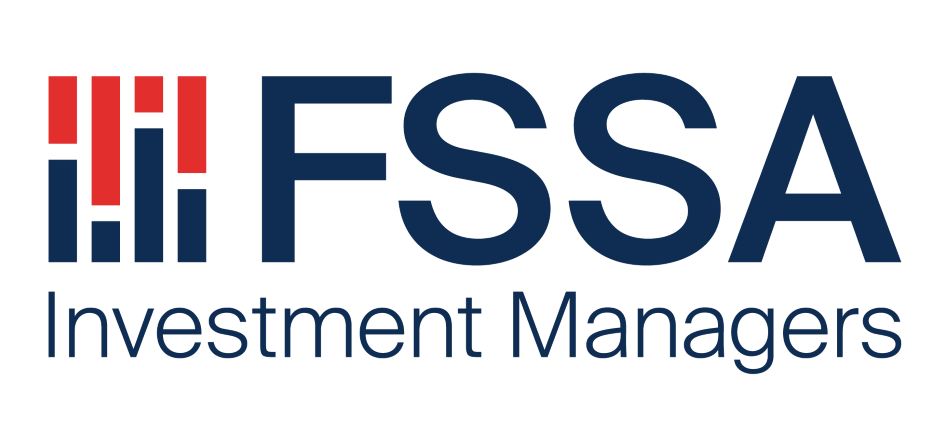
An essay on not investing
“The jet is gone. Now it is only one building, one yacht and one helicopter!”
When we heard the chairman of India’s leading suit garment brand explain his version of corporate governance to us, sitting in his palatial 37-storeyed home in Mumbai that is actually owned by the listed company, we felt we could not, in good conscience, invest our clients’ capital here. Yet, we were keenly aware that the narrative around the company’s turnaround would likely mean that the stock price could rise multifold over the near term.
This was the third meeting we’d had with the company in a period of about six months and there were ample signs of an ongoing cultural turnaround (our favourite kind). The business has a strong brand in India and, despite being severely mismanaged over decades, was still growing and profitable. A raft of new CXOs1 had been brought in, the board was being refreshed, and non-core assets were being sold down. The chairman himself was leading this change, having finally wrangled control over the shareholding a few years ago. He assured us that his singular goal for the medium term was to “unlock value” and that we, as minority shareholders, would be fully aligned with his interests. Valuations were undemanding too, at around 1x enterprise value (EV)-to-sales. We liked a lot of things that the chairman was saying and doing, and yet…
Staying disciplined to our process means making decisions like this where we err on the side of caution. Since our first meeting, the share price has already risen over 100% and could potentially go up another 100% if we are right in our own estimates. But, if our lingering suspicions about the governance were to come true, we would find ourselves in a situation we hate the most: explaining to our clients that we got the quality of management and owners completely wrong despite all the glaring red flags. Our experiences with founder-led cultural turnarounds of companies with poor governance practices suggest that such attempts are often borne out of desperation and, at the first sign of easing pressure on the business or share price, the owners revert to their previous behaviour. In a nutshell, leopards don’t change their spots.
There are many similar cases where we have identified a potential turnaround and undertaken a huge amount of work (meetings, reports, team debates), only to refrain from investing in the end. One recent example is one of India’s largest Non-Bank Finance Companies (NBFC), focused on the Used Commercial Vehicle Financing segment. We have had five meetings with the management in the past two years, attracted by its decent long-term track record as it compounded its book value per share (BVPS) at around 15% CAGR.2 Valuations were attractive too, at around 1x price-to-book (P/B). However, our struggle here is to do with alignment of interest. There are several layers of ownership and it isn’t clear to us that minority shareholders take priority. This lack of alignment has manifested in the form of three attempts at transformational mergers and acquisitions (M&A) over the past decade, two of which were unsuccessful, with the last one being a merger with another listed group NBFC. In this case too, there is some evidence of positive change and a track record that suggests significant shareholder returns over the medium term. But, we haven’t been able to get across the line.
Recently, the Indian market has been ebullient, resulting in a fresh batch of new initial public offerings (IPOs). As usual, we have stayed away, despite sell-side brokers constantly chiding us for leaving money on the table. Of the recent bunch, a large Indian over-the-counter/branded generic pharmaceutical company caught our attention with its rapid growth and attractive metrics. We came away feeling reasonably certain that the management would likely deliver good growth in profit, and valuations were fair (20-25x price-to-earnings ratio), but we couldn’t reconcile this with our dim view of several related party transactions (for example, a hotel business was included in the listed company) and the inherent risk of mis-selling prescription medicines via doctors in India. We were even offered a large allocation at the IPO – something rare in India! But we chose to stay away; and subsequently watched the share price “pop” over 50% since the listing last month.
At the same time, we are keenly aware of the joke about the economist who walked past a hundred-dollar bill on the sidewalk, stating that someone else would have picked up the money already if it were real. We leave money on the table not because we are unimaginative analysts or too rigid in our thought processes. We have been schooled by decades of experience in these matters. For example, we were interested in the potential changes in India’s leading TV broadcaster, with majority ownership and board control potentially changing to a multi-national corporation (MNC) giant (in which we have high regard and are shareholders of in our Asia strategies). This would have made the company investable, despite its past poor corporate governance. As part of the deal, the CEO, who was part of the founding family and had run the company for nearly two decades, was to remain in charge. In our meeting with him, it became clear that the capital allocation was not going to change materially, which was the main reason for our disinterest in the company in the first place. So, we stayed away, despite what might have otherwise seemed an attractive investment case. We are now hearing that the regulatory authorities are not willing to give the erstwhile founders’ family a fresh start and are likely to block the deal, which would make the company uninvestable again.
As the saying goes, those who stand for nothing, fall for everything. And so it is that we believe there isn’t a price for every business. Most are better left alone in the interests of sleeping better at night.
An investment team is really just a collection of principles, a philosophy and a process. Together they act as our compass through markets. Once one starts to compromise in these areas, therein begins the drift. Subtle drift is important because the biggest mistakes are always the ones that did not look like mistakes at the beginning. The compromises are usually small at first, but another one usually follows before too long. Soon, you are completely off course.
Instead, we aim to carefully toe the line between discipline and flexibility. It is our fundamental belief that investment success in the long run is rarely defined by bouts of brilliance; rather, it is the careful and consistent application of our principles, process, and philosophy. Simple, yes; but not at all easy.
1 CXOs – c-suite executives
2 Compound annual growth rate
Source: Company data retrieved from company annual reports or other such investor reports. Financial metrics and valuations are from FactSet and Bloomberg. As at 22 June 2023 or otherwise noted.
Risk factors
Capital at risk. The value of investments and any income from them may go down as well as up and are not guaranteed. Investors may get back significantly less than the original amount invested.
Important Information
This document has been prepared for informational purposes only and is only intended to provide a summary of the subject matter covered and does not purport to be comprehensive. The views expressed are the views of the writer at the time of issue and may change over time. It does not constitute investment advice and/or a recommendation and should not be used as the basis of any investment decision.
This document is not an offer document and does not constitute an offer or invitation or investment recommendation to distribute or purchase securities, shares, units or other interests or to enter into an investment agreement. No person should rely on the content and/or act on the basis of any material contained in this document.
Net Asset Value (NAV) performance is not the same as share price performance and shareholders may realise returns that are lower or higher than NAV performance.
This document is confidential and must not be copied, reproduced, circulated or transmitted, in whole or in part, and in any form or by any means without our prior written consent. The information contained within this document has been obtained from sources that we believe to be reliable and accurate at the time of issue but no representation or warranty, express or implied, is made as to the fairness, accuracy, or completeness of the information. We do not accept any liability whatsoever for any loss arising directly or indirectly from any use of this information.
References to "we" or "us" are references to First Sentier Group. In the UK, issued by First Sentier Investors (UK) Funds Limited which is authorised and regulated by the Financial Conduct Authority (registration number 143359). Registered office Finsbury Circus House, 15 Finsbury Circus, London, EC2M 7EB number 2294743.
Scottish Oriental Smaller Companies Trust plc ("Company") is an investment trust, incorporated in Scotland with registered number SC0156108, whose shares have been admitted to the Official List of the London Stock Exchange plc. The Company is an alternative investment fund and has appointed First Sentier Investors (UK) Funds Limited as the alternative investment fund manager for the Company. Further information is available from Client Services, First Sentier Group, Finsbury Circus House, 15 Finsbury Circus, London, EC2M 7EB or by telephoning 0800 587 4141 between 9am and 5pm Monday to Friday or by visiting www.scottishoriental.com. Telephone calls with First Sentier Group may be recorded.
First Sentier Group entities referred to in this document are part of First Sentier Group, a member of MUFG, a global financial group. First Sentier Group includes a number of entities in different jurisdictions. MUFG and its subsidiaries do not guarantee the performance of any investment or entity referred to in this document or the repayment of capital. Any investments referred to are not deposits or other liabilities of MUFG or its subsidiaries, and are subject to investment risk including loss of income and capital invested.
© First Sentier Group


